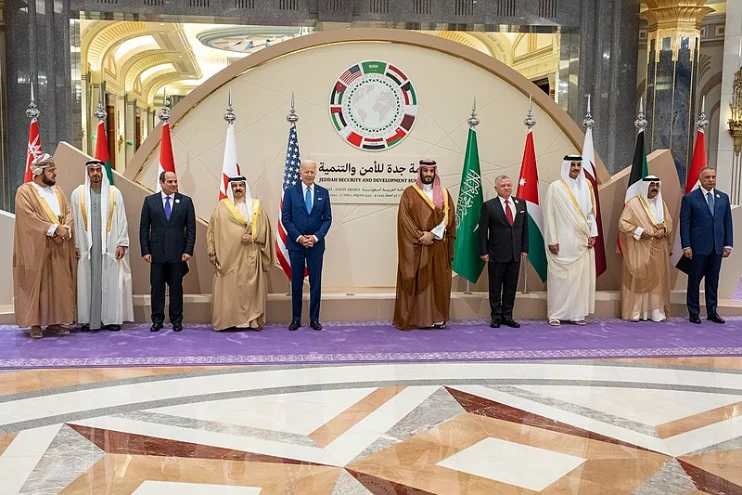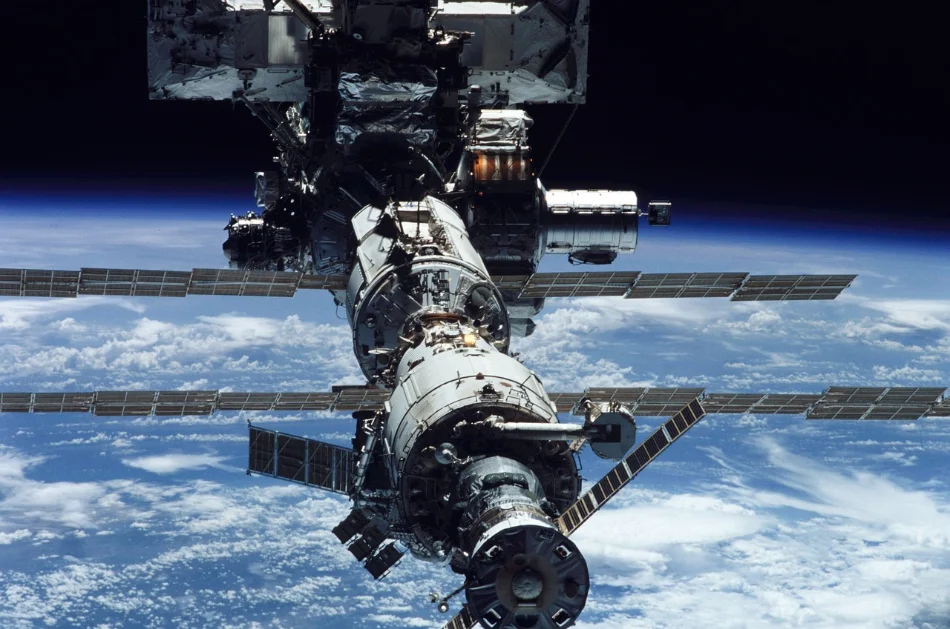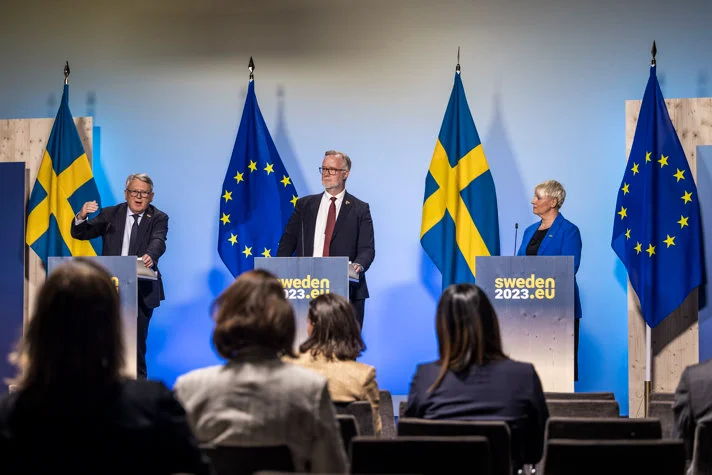The US President, Joe Biden, has faced criticism for his strained relationship with Saudi Crown Prince Muhammed Bin Salman (MBS), which has led to a decline in US-Saudi ties. This has had two significant outcomes. First, Saudi Arabia has grown closer to China in recent years. In December 2022, when Xi Jinping visited Saudi Arabia, he received a warmer welcome than President Biden did during his July 2022 trip. The two nations signed several agreements, and the first-ever China-GCC Summit took place during Xi’s visit. At the beginning of the summit, President Xi stated, ‘China will continue to strongly support the GCC countries in safeguarding their own security and establishing a collective security framework for the Gulf.’
In 2021, China’s trade with Saudi Arabia reached approximately $87.3 billion, and their investments in the country amounted to around $23 billion.”
Despite requests from the US, Saudi Arabia declined to increase its oil production. Instead, Saudi Arabia, along with other OPEC+ members, including Russia, opted for oil production cuts. The main goal behind these cuts is to keep global oil prices elevated, allowing Saudi Arabia to finance critical infrastructure projects.
Saudi-Iran Agreement
The agreement brokered by China between Saudi Arabia and Iran has been seen as a setback for Biden and a sign of China’s increasing influence in the Middle East. The US had expressed support for this agreement, stating that it welcomed any development that could contribute to stability in the Middle East.
Is Biden’s attention to the Middle East yielding positive results?
The Biden administration has faced criticism on various foreign policy issues, particularly regarding the Russia-Ukraine conflict.
Despite having many foreign and domestic priorities, President Biden has been working to improve relations between Saudi Arabia and Israel, as well as reducing tensions with Iran and reviving the Iran nuclear deal. While formal normalization between Saudi Arabia and Israel is linked to the Palestinian issue, Saudi Arabia has been establishing economic connections with Israel. During a meeting on the sidelines of the United Nations General Assembly (UNGA) between President Biden and Israeli Prime Minister Benjamin Netanyahu, Netanyahu expressed hope that “a historic peace between Israel and Saudi Arabia” could be achieved under Biden’s presidency. He believed that such a peace could contribute to resolving the Arab-Israeli conflict, promoting reconciliation between the Islamic world and Israel, and fostering genuine peace between Israel and the Palestinians. Crown Prince MBS of Saudi Arabia also mentioned in an interview that Saudi Arabia and Israel were progressing toward normalizing their relations.
The Biden administration appears to have made some progress on the Iran issue. On September 18, 2023, Iran released five prisoners in a prisoner exchange and, in return, gained access to $6 billion of previously frozen funds. Iranian President Ebrahim Raisi referred to this as a step toward “humanitarian action” between both countries, a sentiment that the US President also welcomed.
Behind the scenes, Qatar played a significant role in facilitating the prisoner swap and is expected to ensure that the released funds are used exclusively for humanitarian purposes.
Despite its anti-Western rhetoric, Iran is interested in diversifying its economic partnerships and not relying solely on China. While Iran and Beijing signed a 25-year cooperation agreement in 2021, China has not made substantial investments in Iran. One reason for China’s caution in investing in Iran has been the impact of US sanctions.
Recent developments clearly show that China’s influence in the Middle East has grown, but the United States still plays an important role in the region. The Biden administration’s approach is notably different from Trump’s, focusing on a nuanced and practical approach.
While former President Trump deserves credit for the Abraham Accords, which led to the normalization of relations between the UAE, Bahrain, Morocco, and Israel, his decision to withdraw from the Iran nuclear deal in 2018 led to a deterioration in US-Iran relations. Despite facing various challenges and domestic criticism, President Biden has persisted in pursuing behind-the-scenes communication with Iran to ease tensions.





